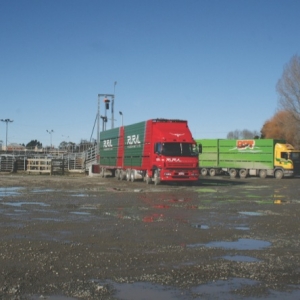Richard Wild last week presented a paper to the New Zealand Veterinary Association on this subject. He told Dairy News that farmers need to be aware of this stress and take steps to mitigate it.
The paper, co-authored by Wayne Ricketts, also from NZVA, appears as many dairy cows prepare to come back to their home farms after autumn and winter grazing.
Wild urges farmers to read the transport code on animal welfare. For those not inclined to read such documents, a ‘farmer friendly’ version is on the DairyNZ website and the full document is on the MPI site.
“Farmers need to be thinking about where animals are going, the distance travelled, how to best select animals fit to take the intended journey and get to the other end of the journey in the same state in which they left the farm. That’s about preparing them – making sure they are adequately rested fed and all those sort of things.”
Transporting dairy cows is a bit more complicated than other categories of livestock and special attention needs to be paid to their needs.
“The difference between transporting a robust beef steer and transporting an older dairy cow is quite different. Dairy cows are more vulnerable particularly if they are pregnant; guidance and rules cover transporting late-pregnant animals. Stress can bring on early calving, and calving on a truck is not a good look. Farmers need to be thinking about the stage of pregnancy those animals are in, and the journey, and whether or not it’s going to create a welfare issue.”
A tough question when transporting stock is ‘who is responsible for the animals and when?’ The Animal Welfare Act talks about the ‘person in charge’ (PIC) of animals – variously the person grazing the animals, the transport operator and the stock owner. Also, are stock in ‘decrepit’ condition, meaning diseased or injured? These cannot be transported without a veterinary certificate. Wild says MPI and the NZVA now have an agreement on what this standard is – a positive outcome.
Irrespective of what the law says, Wild says farmers need to be aware of what the general public’s perception is on animal welfare because the public here and overseas is more interested in animal welfare issues.
“It’s important that the rural community is aware of what issues drive people living in central Auckland, Wellington or Christchurch in relation to animal welfare matters. They are essentially consumers of these animal products and don’t understand farming systems. They have their own perspectives on what good welfare looks like; urban people drive the animals welfare standards and we’ve got to bear that in mind,” he says.
















